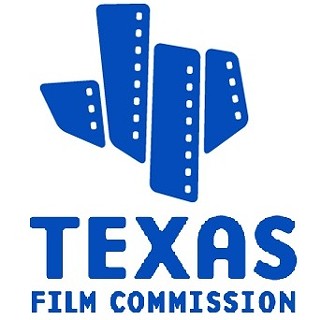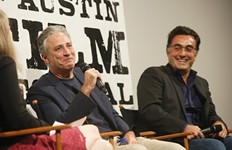Austin Film Festival: Filmmakers of the World, Unite!
Why film commissions are really your friend
By Richard Whittaker, 12:25PM, Fri. Oct. 24, 2014
What's the difference between a director and filmmaker? A filmmaker carries their own equipment.
That off-the-cuff gag from Austin Film Commission chief Gary Bond summed up the Lone Stars: Film in Texas panel at the Austin Film Festival. The independent filmmaker has a pretty heavy load to heft around, but the speakers from an assortment of local and statewide offices suggested that, if they can't exactly shoulder the load, at least they can make sure the weight is distributed sensibly.
This wasn't about answering questions: It was about letting people know where to find the answers by themselves. Heather Page, director of the Texas Film Commission, explained that, while high-profile projects like NBC's Revolution are great for the economy, "as Texas filmmakers, we want to have Texas films made in Texas." Moreover, while most productions in Texas don't spend anywhere near the $250,000 required to pull in state production incentives, there is still a long menu of services her office provides that can help even the smallest shoot.
For example, with 100,000 images on file, she estimates that her office has the largest location photo library "probably in the country, possibly in the world." Filmmakers and directors regularly ask them: "I'd like to shoot in Texas, I'd like to shoot in Austin, I'd like to shoot in the Panhandle, can you come up with a list of locations?" Then there's the Film Friendly Texas program, which works with 58 communities around the state to make them as film-savvy as possible. "That's half the battle," said Page, "having people who understand what you need and what's involved."
Bond suggested that the office's crew listings provide the same kind of dual service, both helping films find crews, and helping crews get a good reputation. "When you do well, you do better the next time around," he said. "It's what you know and who you know."
Here's the rub. Directors tend to know these things, or they have a producer to know it for them. Filmmakers, maybe not so much, and Bond was eager to put their mind at rest. "Our job is to create jobs," he said. "Film commissions are not the movie police. A lot of filmmakers working guerrilla style think that, if they get in contact with the authorities, they'll get in trouble. We don't do that. We want you to make your project.'
"Just don't call me up and ask me how much it costs to rent the Capitol for three days," he said. "Ask Heather."
In Austin, there's always the Austin Film Society to help nurture filmmakers and wannabe filmmakers. Associate artistic director Holly Herrick pitched that they're doing a pretty good job of making Austin somewhere that filmmakers and directors want to live and work. She said, "Someone like David Gordon Green, who went to school in North Carolina, is back in Texas and made his last three films in Texas."
Like the TFC, the AFS provides grants: But like the TFC, that's not all they do. However, she argued that applying for their grants is a good idea, even if your project is not successful. The AFS is one of the few subsidizing arts bodies that gives feedback while the applicant is filling out paperwork. The society will also intensively workshop four select projects from the applicant list, and nearly completed films can be screened in the works-in-progress series.
And, yes, there's the cash itself, including the one thing a lot of filmmakers forget: Sure, they'll remember to budget to apply for film festivals, but will they remember flight costs? That's why AFS offers a travel grant, which will help recipients travel if their film is accepted into any of 50 top-tier festivals ($500 for domestic, $1,000 international). "There are so many festivals we would like to send people to, but we run out of money every year."
With roughly 60 festivals a year in Texas, the advice from the panel was unanimous: Always apply to everything you can, because you never know when or where you'll find an audience. Trish Regdon, executive director of Houston Cinema Arts Society explained, "Everything I've ever done has come about because I went to a film festival."
For more on the Texas Film Commission, visit www.governor.state.tx.us/film.
For information on filmmaking resources in Austin, visit www.austintexas.org/film-commission and the AFS website at www.austinfilm.org.
A note to readers: Bold and uncensored, The Austin Chronicle has been Austin’s independent news source for over 40 years, expressing the community’s political and environmental concerns and supporting its active cultural scene. Now more than ever, we need your support to continue supplying Austin with independent, free press. If real news is important to you, please consider making a donation of $5, $10 or whatever you can afford, to help keep our journalism on stands.
Fernie Martinez, Oct. 31, 2014
film commissions, Austin Film Festival 2014, Texas Film Commission, Gary Bond, Heather Page, Holly Herrick











